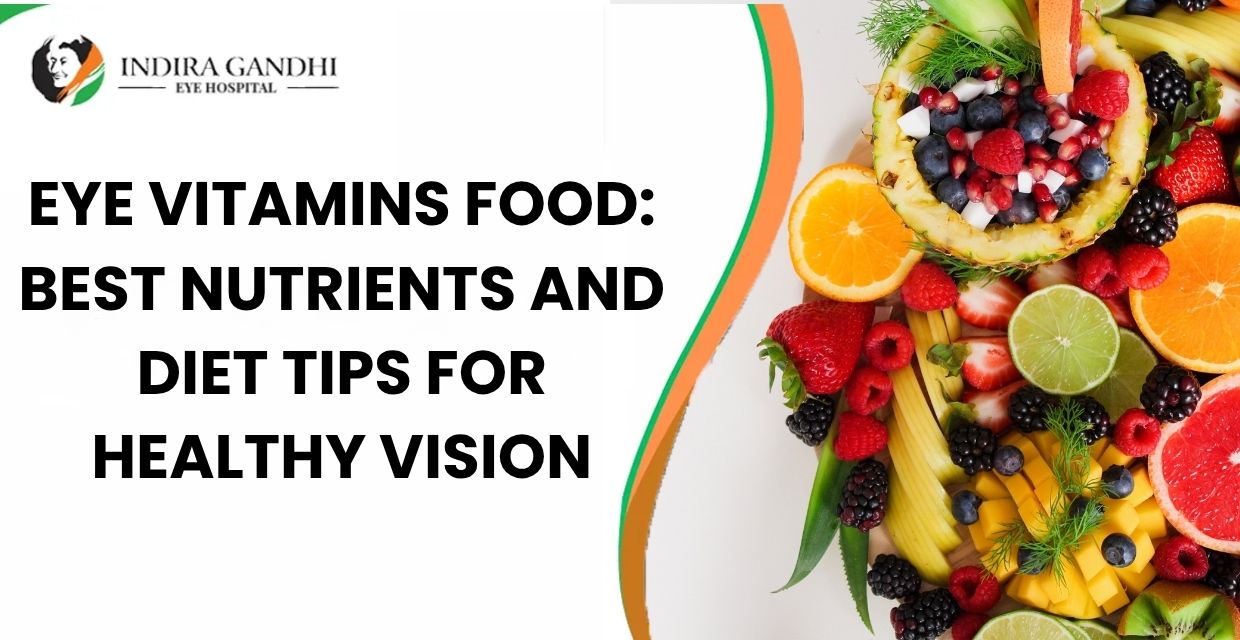|
Getting your Trinity Audio player ready...
|
We often hear the saying, “You are what you eat,” and while we typically apply this to our waistlines or heart health, it’s just as profoundly true for our eyes. Our eyes are intricate, hardworking organs that operate non-stop from dawn till dusk, constantly processing the vibrant world around us. And just like any high-performance machine, they need the right fuel to function optimally and stay healthy for years to come.
If you’ve ever wondered if simply tweaking your diet could make a difference to your eyesight, you’re absolutely on the right track! The truth is, your plate can be a powerful tool for safeguarding your vision. Today, we’re going to dive deep into the fascinating world of eye vitamins food: exploring the best nutrients, their incredible roles, and practical diet tips to ensure your vision remains as clear and vibrant as possible. At Indira Gandhi Eye Hospitals, we believe that understanding the power of nutrition is a cornerstone of proactive eye care, empowering you to make choices that truly benefit your long-term vision.
The Unseen Connection: How Diet Fuels Your Vision
Our eyes are marvels of biological engineering, capable of detecting billions of light waves and translating them into the rich tapestry of images we perceive. This incredibly complex process, from light absorption to nerve signal transmission, requires a constant supply of energy and a robust defense system against damage.
Every day, our eyes are exposed to various stressors: harmful UV radiation, high-energy blue light from screens, environmental pollutants, and the natural metabolic processes that create “free radicals.” These free radicals are unstable molecules that can cause oxidative stress, damaging cells and contributing to the development and progression of various eye diseases, including age-related macular degeneration (AMD), cataracts, and even chronic dry eye.
This is where the magic of eye vitamins food comes in. The nutrients we consume provide the building blocks for healthy eye tissues, fuel metabolic processes, and, crucially, supply potent antioxidants that neutralize those damaging free radicals. Without adequate nutrition, our eyes become more vulnerable to damage, leading to faster progression of age-related conditions and a higher risk of other ocular issues.
Eat Right for Bright Vision!
Discover the top eye-friendly vitamins and foods that support long-term vision health. Build your perfect eye care diet with expert tips.
Talk to a Vision Nutrition Expert

